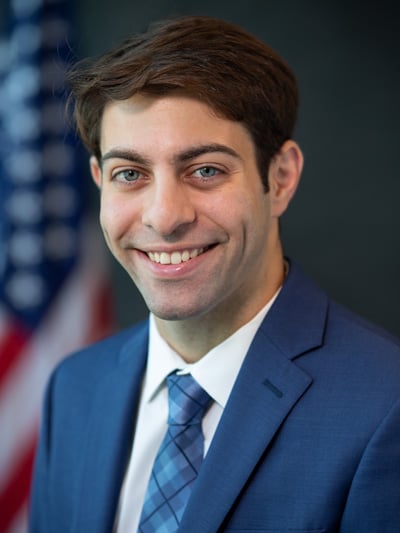-
 Legislative Director and Special Assistant to the Executive DirectorNational Association of Attorneys General
Legislative Director and Special Assistant to the Executive DirectorNational Association of Attorneys General
Following the events of January 6th at the U.S. Capitol and the Office of the Director of National Intelligence’s March 2021 report warning that domestic violent extremists pose an elevated threat this year, it was no surprise that the House Homeland Security Committee’s Intelligence and Counterterrorism Subcommittee’s first hearing of the 117th Congress was focused on state and local responses to domestic terrorism.
After a closed briefing with the National Association of Attorneys General in February, Intelligence and Counterterrorism Subcommittee Chairwoman Elissa Slotkin (D-MI) invited Attorneys General Dana Nessel of Michigan and Aaron Ford of Nevada to testify in front of the full subcommittee on March 24 about how attorneys general are responding to domestic terrorism. Though some states, including Michigan, do have domestic terrorism statutes, there are no federal domestic terrorism statutes and debate is ongoing on whether a federal statute is even necessary. With the recent spike in domestic terrorism incidents, the subcommittee has focused its attention on determining whether state and local law enforcement have the tools necessary to combat domestic terrorism and what Congress can do to help, including passing a domestic terrorism federal statute.
In Michigan, the most prominent incident of domestic terrorism over the past year was the attempted kidnapping of Governor Gretchen Whitmer. In October 2020, Attorney General Nessel filed 19 state felony charges against members of the Wolverine Watchmen, a local militia group, for several threats against law enforcement officers and for planning to raid the state capitol and kidnap the Governor. During the March 24 hearing, Attorney General Nessel emphasized the federal, state, and local partnerships that made last year’s investigation successful. However, the attorney general also told the committee that her office needed support and resources to stay ahead of the ever-evolving domestic terrorism threat. With the rise in threats, the Michigan Attorney General Office has been stretched thin to the point that a new MOU was recently established with a local university so undergraduate students could assist with tracking evolving threats.
Nevada Attorney General Ford echoed Attorney General Nessel’s remarks about the need for federal support and partnerships. Nevada’s most significant domestic terrorism threat comes from the sovereign citizen movement, which does not recognize state, local, or federal government, refuses to pay taxes, and has a history of serving false government documents, including falsified arrest warrants, to government officials. The Southern Nevada Counter-Terrorism Center estimates that as many as 500 sovereign citizens reside in Nevada and they have a long history of violence. In 2014, two Las Vegas police officers were ambushed and killed by sovereign citizens. Similar plots targeting officers and state officials have thankfully been foiled by other police departments throughout the state.
Throughout the hearing, subcommittee members reiterated the importance of moving swiftly but not rushing to a haphazard solution. A top concern discussed was how a domestic terrorism statute could be abused or deliberately misused to target free speech and peaceful protests. Subcommittee members expressed concerns about who decides what groups are considered terrorists, how first amendment protections will be addressed, and whether a new statute will lead to easier prosecutions, considering all the tools already available. Though subcommittee members agreed action is needed, it is not clear what proposals are likely to gain the most momentum.
In addition to testimony from Attorneys General Nessel and Ford, District of Columbia Attorney General Karl A. Racine, and Oregon Attorney General Ellen Rosenblum both submitted statements for the record. Attorney General Rosenblum’s statement highlighted Oregon’s bias incident response hotline. The hotline is managed by Oregon’s Department of Justice and was instituted to help curb hate crimes, which are often associated with domestic terrorism groups. Attorney General Racine, who also serves as NAAG president, focused his statement on his office’s response to the January 6 events at the Capitol and the District of Columbia’s recent rise in hate crimes. As NAAG President, Attorney General Racine has made combatting all types of hate and extremism a focus of his 2021 NAAG Presidential Initiative, “The People v. Hate: Standing Up for Humanity”.


